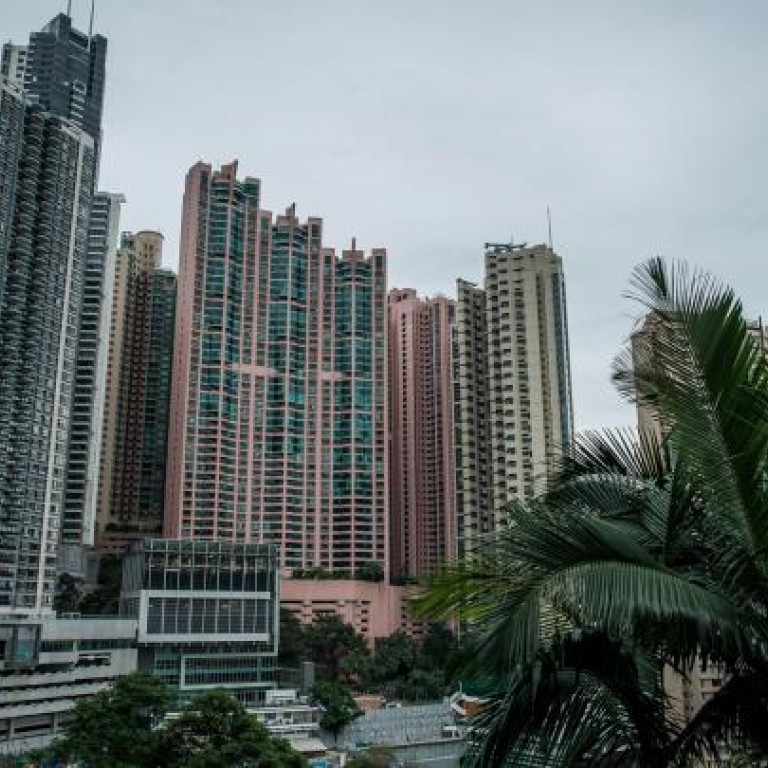
Economy can absorb 30pc drop in property prices, analysts say
Ahead of Leung Chun-ying's policy address, analysts say the economy is strong enough to absorb extra measures to make homes more affordable
Hong Kong's low interest rates and stable banking system provide a cushion strong enough to absorb a drop in property prices of up to 30 per cent in the event of more curbs, analysts say.
They said more property policies aimed at making flats more affordable could be introduced on Wednesday when Chief Executive Leung Chun-ying delivers his first policy address.
"I do not think the government is happy to see the current market condition," said Ringo Lam Chun-chiu, valuation director of surveyors AG Wilkinson & Associates. "When the government announced the new stamp duty in October, I believe they expected to see a decline in prices."
Lam said the government might introduce more measures.
In October the government imposed a new stamp duty of 15 per cent on non-locals and companies who buy homes. It also raised by 5 percentage points an across-the-board "special stamp duty" on sellers to curb speculation, and extended its effect on resales from two to three years. Duty of 10 to 20 per cent of the price is payable if the property is resold in that period.
Home prices in the secondary market immediately dropped 2 per cent and weekly sales volume plunged 70 per cent from the weekly peak in February last year.
But prices slowly picked up and buying interest has gradually been recovering with weekly sales at 50 housing estates surveyed by agent Ricacorp Properties rebounding to 260, against 112 in the first week of November.
At the end of December, the International Monetary Fund warned Hong Kong risked a sharp decline in home prices after they doubled in the past four years. It said an abrupt correction would lead to falling collateral values and negative wealth effects, which could affect economic activity and lending.
"Even if property prices fall 20 to 30 per cent, it would not hit the economy seriously," said economist Kwan Cheuk-chiu, who is also a member of the Long Term Housing Strategy Steering Committee chaired by the secretary for transport and housing.
It would just bring prices back to the level early last year, said Kwan. He said last year's price level was unreasonably high.
"A fall in property prices may affect consumption. On the other hand, the operating cost of retailers could be reduced. Many retailers currently are suffering from expensive rents."
But property agents said a fall in prices would hurt them.
Patrick Chow Moon-kit, research head of Ricacorp Properties, does not expect tougher measures to be announced.
"It seems that our chief executive will focus more on the long-term policy of land supply and how to improve home ownership through government support."
He said Leung might introduce new measures if prices continued to rise. "But we will not see many negative equity owners if prices fall within 30 per cent.
"A mortgage rate of 2 to 3 per cent and the government's series of mortgage lending restriction policies provide enough of a cushion to absorb the fall in valuations," Chow said.
The Hong Kong Monetary Authority in mid-September implemented measures to tighten mortgage lending, including cutting the mortgage-to-income ratio to 40 per cent from 50 per cent. The situation now is better than before the last big crash, Chow said. "Homeowners are not highly leveraged on property purchases after 1997."
Property prices dropped more than 60 per cent after the financial crisis in late 1998. The number of owners in negative equity - meaning their homes were worth less than their mortgages - surged to 106,000 in June 2003, before the market began to recover in the fourth quarter.
The mortgage rate was about 10 per cent at the 1997 peak, and the average loan-to-value ratio on mortgages was 52 per cent.


